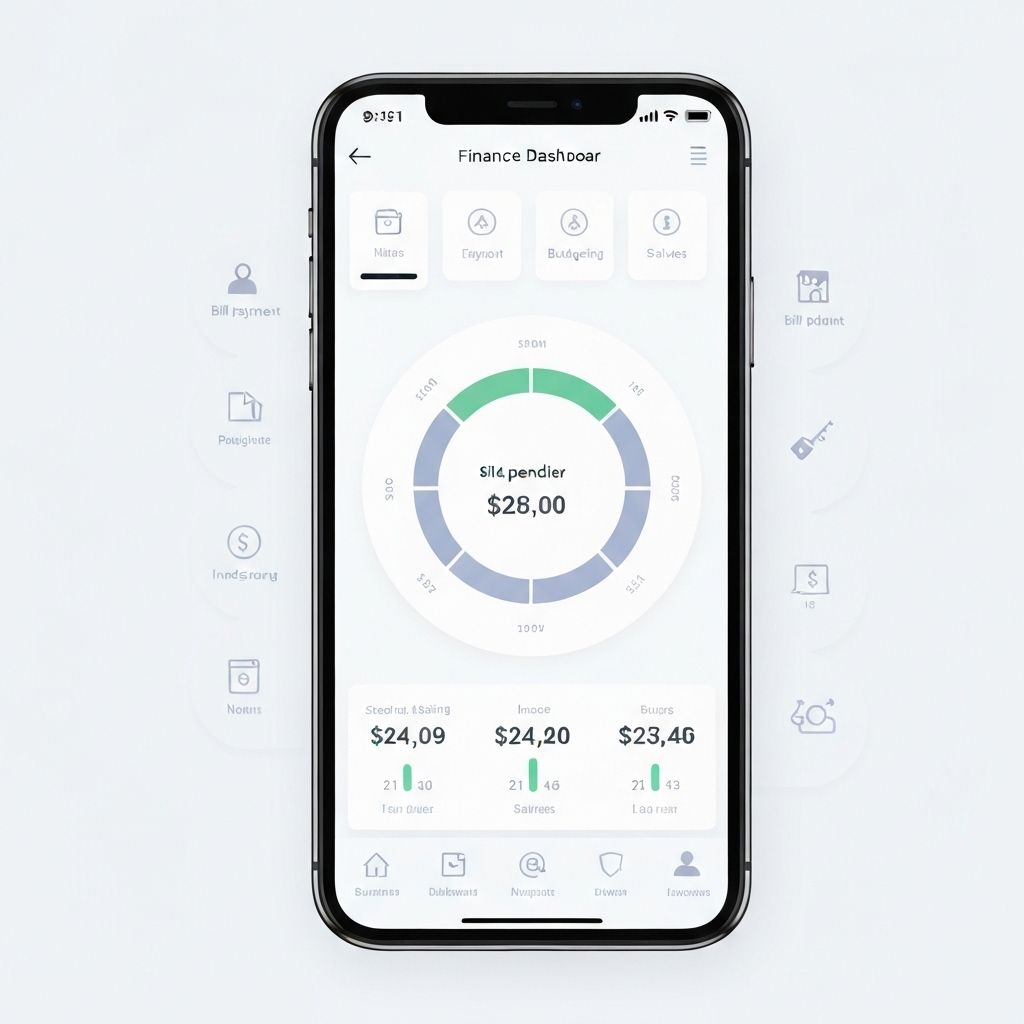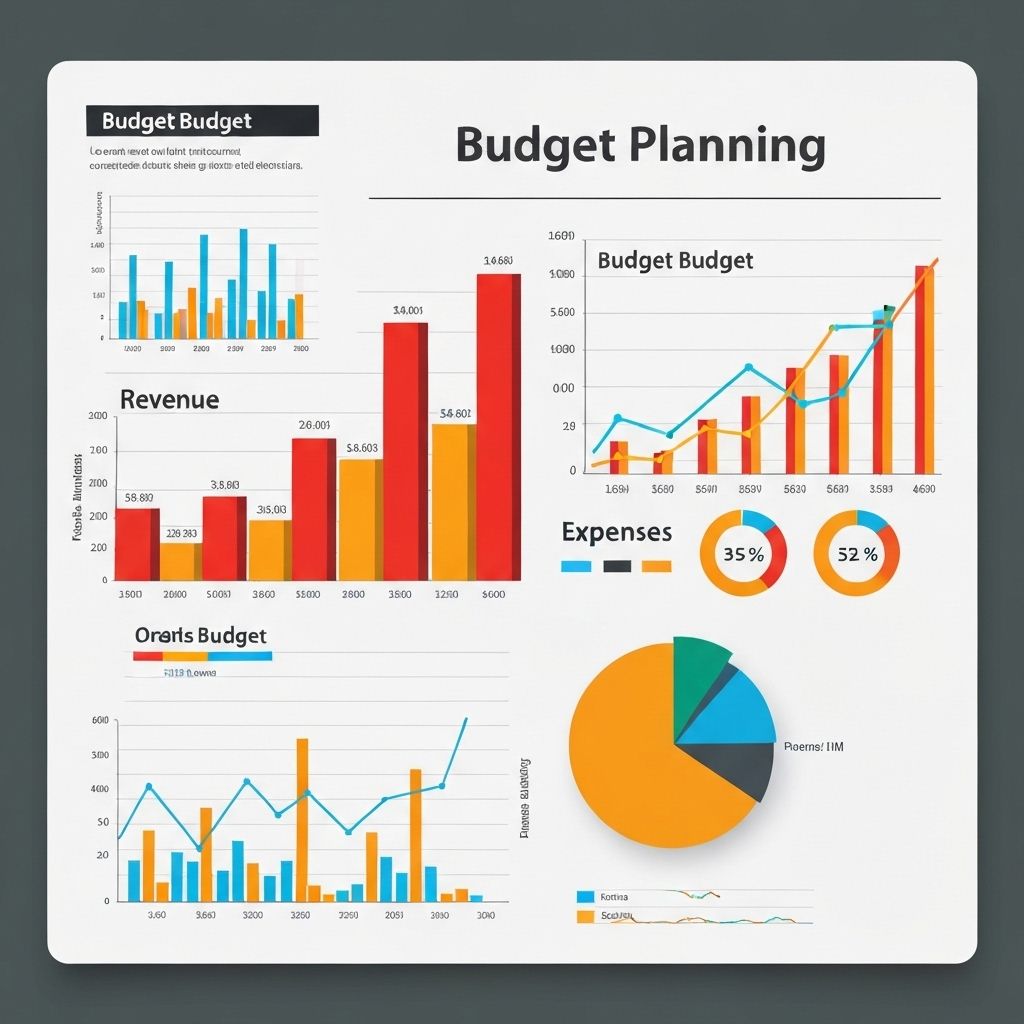The Freelancer's Dilemma
If you're a freelancer, consultant, or small business owner, you know the challenge: managing business expenses while keeping personal finances separate. Traditional accounting software is often too complex and expensive for solo entrepreneurs.
The Small Business Landscape in India
| Business Type | Count in India | Avg Monthly Revenue |
|---|---|---|
| Freelancers | 15 million+ | ₹40,000-80,000 |
| Home-based businesses | 8 million+ | ₹30,000-60,000 |
| Online sellers | 5 million+ | ₹50,000-1,00,000 |
| Content creators | 2 million+ | ₹25,000-75,000 |
Why Personal Finance Tools Work for Small Business
Personal finance apps like Dhan Well can be surprisingly effective for small businesses and freelancers because they offer:
Key Advantages
| Feature | Traditional Accounting | Personal Finance App |
|---|---|---|
| Setup Time | 2-3 days | 5 minutes |
| Monthly Cost | ₹1,000-3,000 | ₹0-99 |
| Learning Curve | 2-3 weeks | 1 day |
| Mobile Access | Limited | Full featured |
| Ease of Use | Complex | Simple & intuitive |
Use Cases for Small Businesses
1. Freelancers and Consultants
Track project expenses, client payments, and business costs separately from personal spending.
Typical Freelancer Expenses
| Category | Monthly Cost | Examples |
|---|---|---|
| Software & Tools | ₹2,000-5,000 | Adobe, Figma, hosting |
| Internet & Phone | ₹1,500-2,500 | Broadband, mobile plan |
| Co-working Space | ₹3,000-8,000 | Desk rental, meeting rooms |
| Marketing | ₹2,000-10,000 | Ads, portfolio site |
| Professional Development | ₹1,000-5,000 | Courses, books, conferences |
2. Online Sellers
Monitor inventory costs, shipping expenses, platform fees, and marketing spend. Track income from different sales channels.
E-commerce Expense Breakdown
- Product Costs: 40-50% of revenue
- Platform Fees: 10-20% (Amazon, Flipkart, Meesho)
- Shipping: 5-10% of revenue
- Packaging: 2-5% of revenue
- Marketing: 10-15% of revenue
- Returns & Refunds: 5-10% of revenue
3. Content Creators
Keep tabs on equipment purchases, software subscriptions, and production costs. Track revenue from different platforms and sponsorships.
Creator Revenue Streams
| Platform | Revenue Type | Typical Earnings |
|---|---|---|
| YouTube | Ad revenue, memberships | ₹10,000-50,000/month |
| Sponsored posts, affiliate | ₹5,000-30,000/post | |
| Patreon | Subscriptions | ₹15,000-60,000/month |
| Brand Deals | Sponsorships | ₹20,000-2,00,000/deal |
4. Home-Based Businesses
Separate business expenses from household costs. Track utilities, internet, and other shared expenses that need to be allocated.
Home Office Deductions
- Rent/Mortgage: Proportional to office space (10-20%)
- Electricity: Business usage portion (15-25%)
- Internet: Business usage (50-100%)
- Phone: Business calls and data (30-70%)
- Furniture: Desk, chair, storage (100%)
Setting Up for Business Use
Create Business Categories
Set up custom categories for your business expenses:
Essential Business Categories
| Category | Purpose | Tax Deductible |
|---|---|---|
| Office Supplies | Stationery, printer ink, etc. | Yes |
| Software & Tools | Subscriptions, licenses | Yes |
| Marketing & Advertising | Ads, promotions, branding | Yes |
| Professional Services | Accountant, lawyer, consultant | Yes |
| Travel & Transportation | Business trips, client meetings | Yes |
| Client Entertainment | Meals, gifts | Partial |
| Equipment & Hardware | Laptop, phone, camera | Yes (depreciation) |
Track Income Separately
Use the income tracking feature to record all business revenue:
Income Categories
- Client Payments: Project fees, retainers
- Product Sales: Physical or digital products
- Service Fees: Consulting, coaching, training
- Passive Income: Affiliate, ads, royalties
- Refunds & Reimbursements: Returns, expense reimbursements
Tax Time Made Easy
When tax season arrives, Dhan Well makes it simple to prepare your returns:
Tax Preparation Checklist
- Export Transactions: Download all business expenses in CSV format
- Filter by Category: Separate deductible expenses
- Generate Reports: Create monthly and annual summaries
- Calculate Totals: Sum up all business expenses
- Share with Accountant: Send organized data to your CA
Common Tax Deductions
| Deduction | Limit | Documentation |
|---|---|---|
| Home Office | Proportional | Rent receipts, utility bills |
| Equipment | 100% (depreciation) | Purchase invoices |
| Software | 100% | Subscription receipts |
| Travel | 100% (business) | Tickets, hotel bills |
| Professional Fees | 100% | Service invoices |
Cash Flow Management
Small businesses live and die by cash flow. Dhan Well helps you:
Cash Flow Monitoring
- Current Position: See your financial status at a glance
- Upcoming Expenses: Track bills and payments due
- Recurring Costs: Monitor subscriptions and fixed expenses
- Seasonal Planning: Prepare for slow and busy periods
- Early Warning: Identify cash flow problems before they become critical
Cash Flow Best Practices
- Maintain Buffer: Keep 3-6 months of expenses in reserve
- Invoice Promptly: Send invoices immediately after work completion
- Follow Up: Chase overdue payments regularly
- Plan Expenses: Schedule large purchases during high-income periods
- Review Weekly: Check cash flow every Monday morning
Budget for Business Growth
Use budgeting features to plan and control business spending:
Growth Budget Allocation
| Category | % of Revenue | Purpose |
|---|---|---|
| Marketing | 10-20% | Acquire new customers |
| Product Development | 15-25% | Improve offerings |
| Operations | 30-40% | Day-to-day expenses |
| Savings/Investment | 10-20% | Business growth fund |
| Owner Salary | 20-30% | Personal income |
Subscription Management for Businesses
Modern businesses rely on numerous subscriptions. Track them all in Dhan Well:
Essential Business Subscriptions
| Tool | Purpose | Monthly Cost |
|---|---|---|
| Google Workspace | Email, storage, docs | ₹125-1,250 |
| Canva Pro | Design tool | ₹500 |
| Zoom | Video calls | ₹1,100 |
| Mailchimp | Email marketing | ₹800-3,000 |
| Trello/Asana | Project management | ₹800-1,500 |
| Hosting | Website | ₹300-2,000 |
Best Practices for Business Use
1. Track Immediately
Add expenses as soon as they occur. Don't wait until end of day or week.
2. Use Descriptions
Add detailed notes about business purpose for tax records:
- "Client meeting lunch with ABC Corp"
- "Marketing campaign for Product X launch"
- "Office supplies for Q1 2025"
3. Review Weekly
Set aside 30 minutes every Monday to review business finances:
- Check total income and expenses
- Review cash flow position
- Identify any unusual transactions
- Plan for upcoming expenses
- Adjust budgets if needed
4. Export Monthly
Download reports at the end of each month for your records and accountant.
5. Separate Accounts
Consider using different categories or tags for business vs. personal expenses.
When to Upgrade to Business Software
While Dhan Well works great for small businesses, you might need dedicated business software when you:
Upgrade Indicators
| Need | Dhan Well | Business Software |
|---|---|---|
| Expense Tracking | ✓ Excellent | ✓ Excellent |
| Income Tracking | ✓ Good | ✓ Excellent |
| Invoicing | ✗ Not available | ✓ Full featured |
| Payroll | ✗ Not available | ✓ Available |
| Inventory | ✗ Not available | ✓ Available |
| Multi-user | ✗ Single user | ✓ Multiple users |
Success Stories
Case Study 1: Freelance Designer
Challenge: Spending 5 hours/month on expense tracking in spreadsheets
Solution: Switched to Dhan Well for quick expense entry
Results:
- Reduced tracking time to 30 minutes/month
- Discovered ₹3,000/month in unnecessary subscriptions
- Increased savings by 25%
- Tax preparation time reduced by 70%
Case Study 2: Online Seller
Challenge: Difficulty tracking expenses across multiple platforms
Solution: Used Dhan Well categories for different expense types
Results:
- Clear visibility into profit margins
- Identified high-cost products
- Optimized marketing spend
- Increased profitability by 18%
Start Managing Your Business Finances
Whether you're a freelancer just starting out or running a small business, Dhan Well can help you stay organized and in control. Sign up today and start tracking your business expenses professionally.
Quick Start for Business
- Create your Dhan Well account
- Set up business expense categories
- Add your first business expense
- Create budgets for key categories
- Track all subscriptions and recurring costs
- Review weekly and export monthly
- Share reports with your accountant



